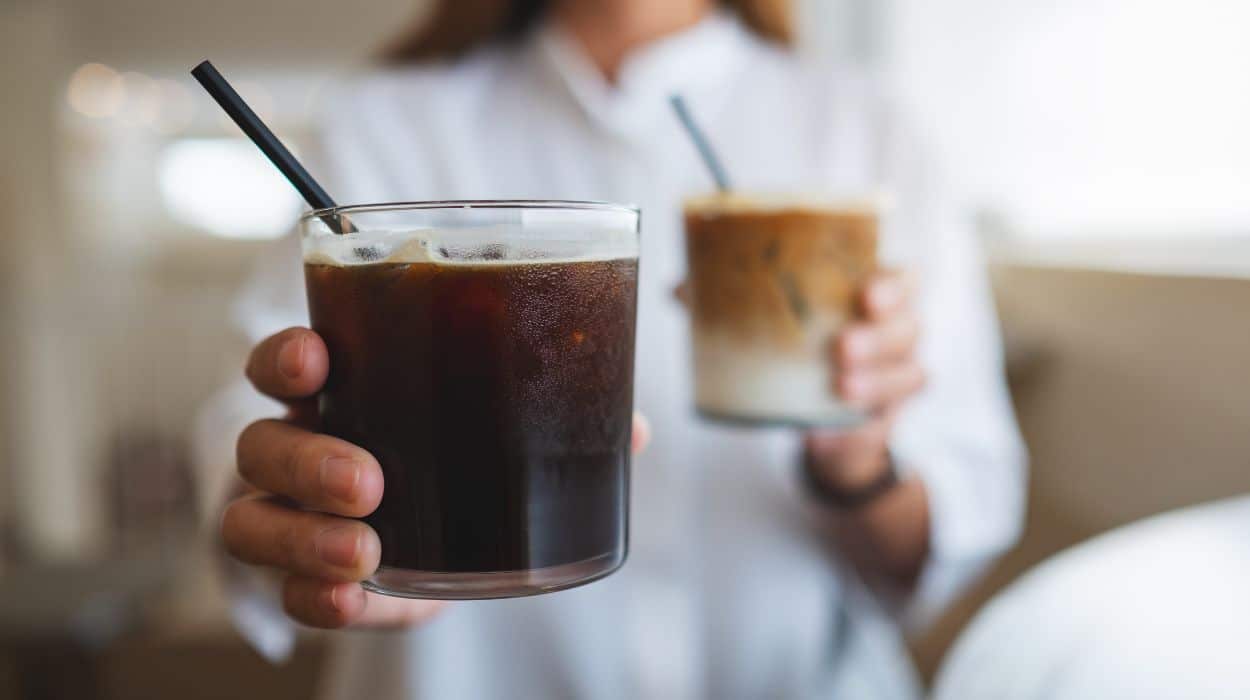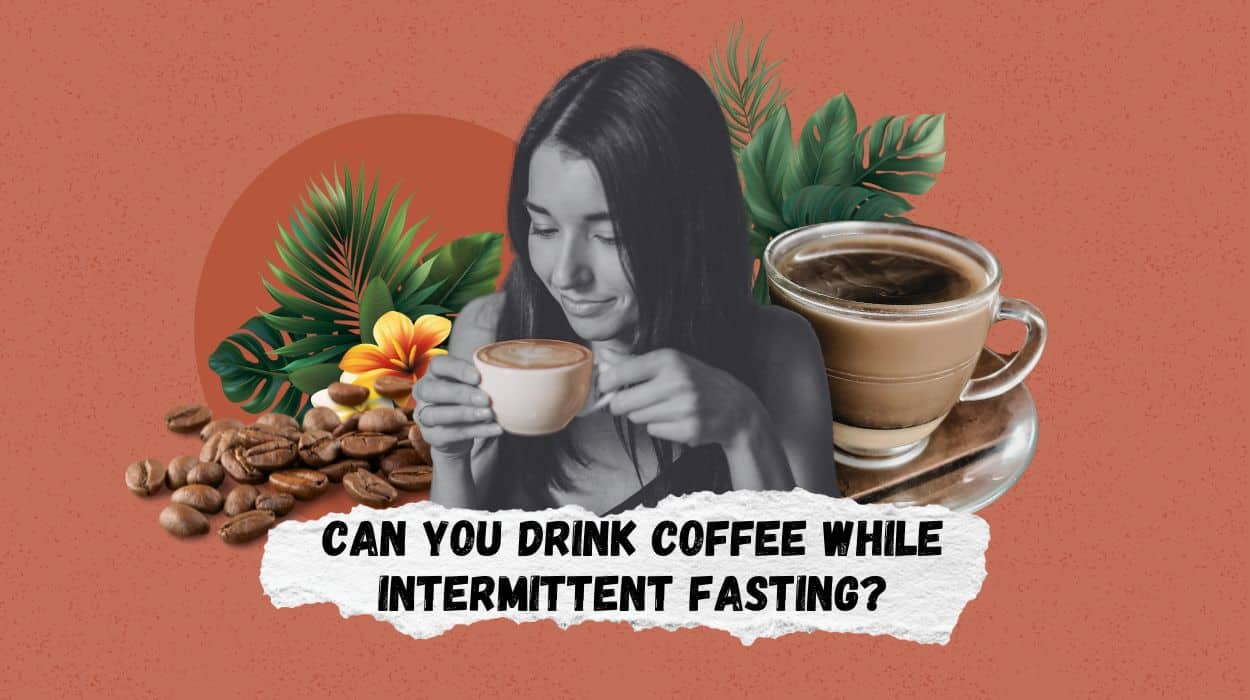Most of you have had the same feeling every morning. You wake up, roll out of bed, and aim for the nearest cup of regular coffee. Coffee is one of the most consumed beverages in the US; roughly 75 percent[1] of adults 20 or older drink this beverage.
The caffeine in coffee allows for the body and mind to become more active, giving the consumer a feeling of being awake. It is the preferred beverage among many adults for good reason. While coffee is commonly consumed by most adults, can you drink coffee while intermittent fasting? Explore the information below for more details.
Can You Drink Coffee While Intermittent Fasting?
Yes, you can. Drinking plain black coffee while fasting can be a great way to mix up the routine without breaking the fast. Just be mindful about what is in your coffee and avoid any cream or sugar.
Can You Drink Coffee While Fasting?
If you have wondered whether you can drink coffee while fasting, the good news is that you are in the clear. You can drink black coffee and not break your fast, just make sure not to add sugar, cream, and other ingredients that have calories.
Here’s the deal with many coffee drinkers. They tend to consume flavored coffee regularly, meaning it’s common for many to add cream or sugar. However, the flavored coffee will break your fast. At least while in your fasting window, try to avoid coffee that has high-calorie additives. When you are in your eating window, this might be a good time to add almond milk or creamer to spice up your coffee routine.
Intermittent fasting programs are known for long periods of fasting with a short window for eating. However, many rejoice when they find out that drinking a hot cup of coffee won’t break your fast.
The idea around intermittent fasting is to avoid consuming calories, food, or beverages during fasting hours. During feeding hours, it is important to have a sound, balanced diet to obtain enough macros and nutrients to support your well-being.
Coffee can come in various forms. Unfortunately, many forms are loaded with milk, sugar, syrups, and toppings that make the coffee seem like a dessert. When you go on an intermittent fasting program and you want coffee, you should simply have black coffee with no additions. Consider these tips for enhancing black coffee:
- Black cold brew.
- Consider drip coffee.
- Try black espresso shots.
- Add spices such as cinnamon, nutmeg, or a dash of salt.
Benefits Of Coffee During Intermittent Fasting

Promote Weight Loss
Perhaps the biggest benefit of drinking coffee while fasting is it enhances metabolic health, including blood sugar levels. Studies have shown a strong relationship between coffee consumed and reduced body fat,[2] suggesting that coffee is beneficial for weight loss and might decrease elevated blood sugar levels. In addition, many go on an intermittent fasting program to lose excess body fat and blood sugar, and adding black coffee to the mix could enhance metabolic health.
Reduce Inflammation
Another reason people might go on an intermittent fasting schedule is to reduce systemic inflammation. Since there are fewer hours for eating, intermittent fasting can help to reduce snacking and poor food choices, which can reduce inflammation. In addition, drinking coffee may help further reduce inflammation. Studies have shown that black coffee consumption can release antioxidants[3] that can combat inflammation in the body.
Improve Brain Function
It’s common knowledge that coffee helps to wake the mind, but can it improve overall brain health? Epidemiologic studies have shown[4] that coffee consumption can lead to a reduced risk of dementia and Alzheimer’s disease, primarily from the effects of caffeine. Consider one cup of black coffee during your fasting hours to improve brain health and reduce the risk of mental decline.
Better Mood

Drinking black coffee while on an intermittent fasting program can positively affect mood. Studies on University students have shown the consumption of coffee one hour before a lecture can lead to perceived feelings of enhanced mood.[5] The effects of enhanced mood were demonstrated after only about 60 milligrams of caffeine or roughly half of what a standard cup offers. That said, a cup of coffee could help to perk up the day.
The Risks Of Drinking Coffee While Fasting
While consuming coffee is safe for most adults, there are some circumstances when it can cause side effects. Consider the risks of coffee intake during a fasting window below to help inform you prior to giving it a try.
Stomach Upset
Coffee intake on an empty stomach has great health benefits, but it does increase the risk of a stomach upset. When you have an empty stomach, drinking coffee break or even having the best caffeine pills can cause GI distress and acid reflux.
Poor Sleep
One downside to having coffee during the fasting period is that it can lead to poor sleep quality. Sleep studies have demonstrated that consuming 400 milligrams of caffeine up to six hours before bed can significantly disrupt sleep.[6] Being mindful about how much caffeine is consumed in the afternoon is important for overall sleep quality and selecting decaffeinated coffee might be the best option later in the day to avoid poor sleep.
Too Much Caffeine
One downside to drinking coffee during a fasting period is that having too much caffeine can lead to increased blood pressure, anxiety, worry, and headaches. While there is no exact amount of caffeine each person should have per day, most people can safely consume f 400 milligrams of caffeine per day. How much coffee does that equate to? Roughly four standard cups of coffee depending on the strength of the brew. Switching to decaffeinated coffee can still give health benefits but without the excess caffeine.
Chest Pain
One potential risk of drinking coffee while fasting is that it can cause chest pain. While it is not very common, it does occur in some people, especially when too much caffeine has been consumed. There is a suggestion that a high dose of caffeine could lead to chest pain and palpitations, both of which require medical attention. If at any time chest pain or palpitations occur, it is crucial to seek medical help to determine the cause and to ensure your safety.
Conclusion
Intermittent fasting is a common dieting tool incorporating a long fasting period with a smaller feeding period. This technique has been used to control how many calories are consumed each day for weight loss.
While intermittent fasting has periods when calories are not ingested, regular coffee consumption is something that many people can enjoy that won’t break their fast. If black coffee is consumed, this beverage can help to enhance a weight loss program.
Frequently Asked Questions
The short answer to this is yes. Usually, intermittent fasting programs involve cycling, meaning there will be days when you are not fasting. Cycling is common, but the days you are not fasting can be a cheat day. Just be mindful not to ruin your entire weight loss plan.
Yes, you can drink alcohol when fasting, just as long as it is during your feeding window. Be mindful that many intermittent fasting programs have calorie reduction plans so this might interfere on days when you need to consume very few calories.
Having zero-calorie sodas, or diet soft drinks, is controversial, as these beverages contain preservatives and artificial sweeteners. However, technically they have zero calories so if you must have one, do so responsibly and be mindful that artificial sweeteners are much sweeter than table sugar and could lead to sugar cravings.
Generally, adults go on an intermittent fasting program for benefits such as regulating blood glucose, combating high blood pressure, improving insulin sensitivity and insulin levels, and reducing the risk of metabolic syndrome.
 Expert's opinion
Expert's opinion
